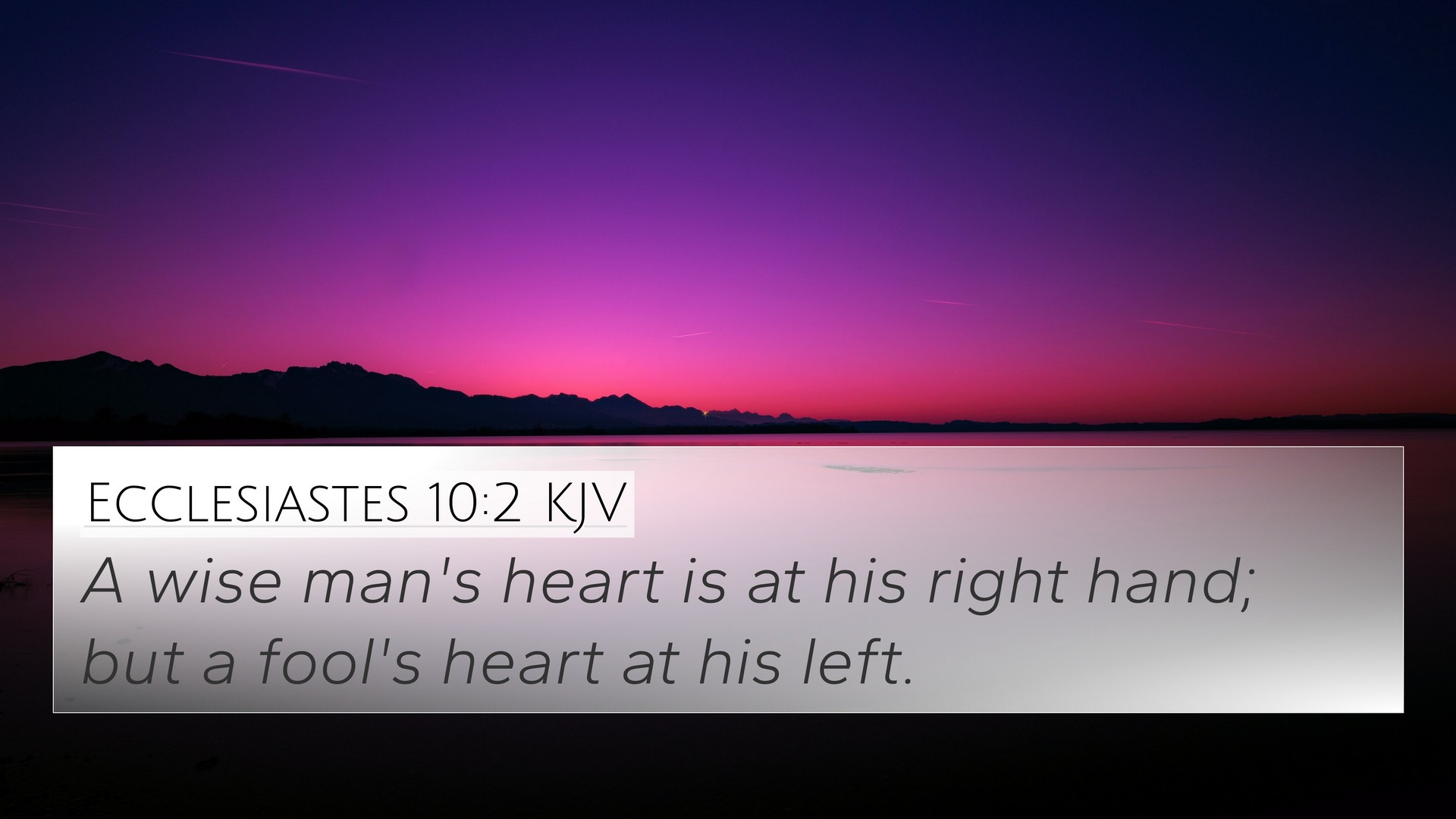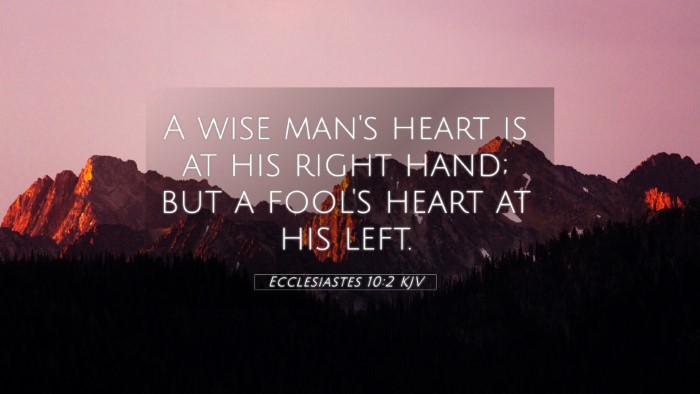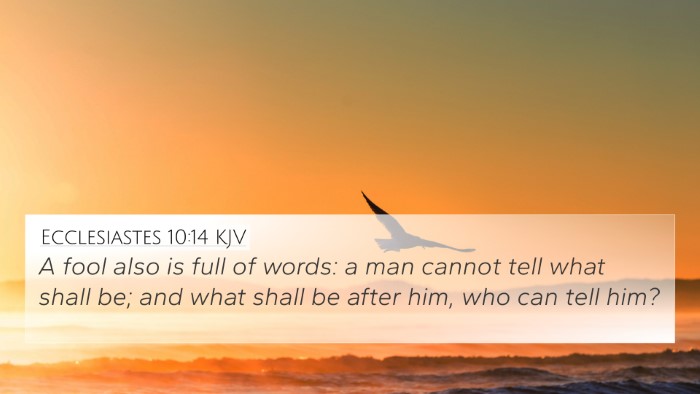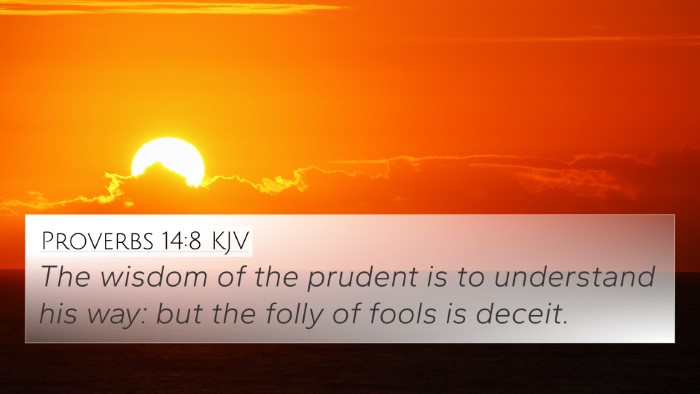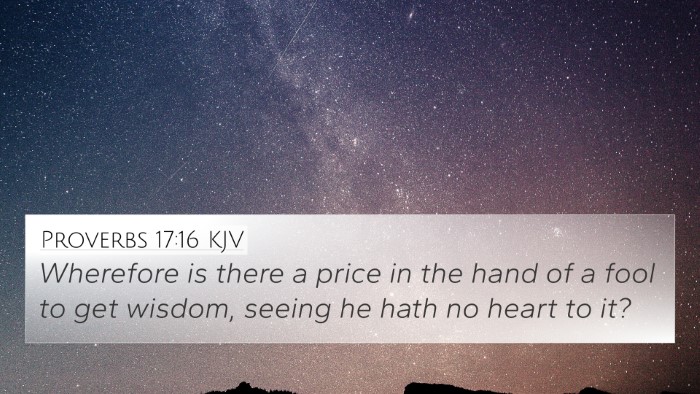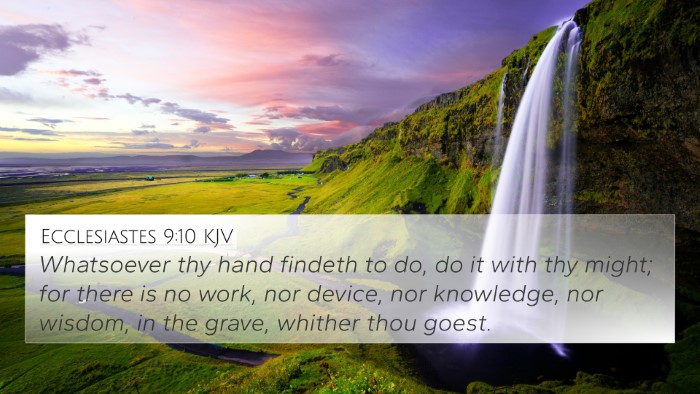Understanding Ecclesiastes 10:2
Ecclesiastes 10:2 states: "A wise man's heart is at his right hand; but a fool's heart at his left." This verse highlights the distinction between wisdom and folly, emphasizing the internal disposition that guides one's actions.
Verse Meaning and Interpretation
This verse suggests a symbolic representation of wisdom and folly, where the right hand is commonly associated with favor, strength, and righteousness, while the left is often associated with weakness, disappointment, or foolishness. Here is a breakdown of key insights from notable commentaries:
- Matthew Henry: He emphasizes the moral significance of the heart's orientation. A wise person's heart, being at his right hand, indicates their alignment with God's will and wisdom. In contrast, the fool's heart at the left suggests a life led by foolish desires and unwise choices.
- Albert Barnes: Barnes notes that the right hand side symbolizes strength and security. The verse reflects a deeper truth that wisdom provides a solid foundation for decision-making, while folly leads to instability and poor judgment.
- Adam Clarke: Clarke interprets the "right hand" as representing righteousness and spiritual insight. He highlights that wisdom equips an individual to discern the right path, while folly blinds them to the truth.
Thematic Connections
This verse can be connected to several themes in the Bible, affirming the importance of wisdom in one's life. Here are notable cross-references that enhance the understanding of this verse:
- Proverbs 3:5-6: "Trust in the LORD with all your heart and lean not on your own understanding." This verse reinforces the necessity of wisdom in guiding one's choices.
- Proverbs 4:23: "Above all else, guard your heart, for everything you do flows from it." This aligns with the concept that the heart's disposition influences our actions.
- James 1:5: "If any of you lacks wisdom, let him ask of God, who gives to all liberally and without reproach." This encourages believers to seek divine wisdom.
- Psalm 111:10: "The fear of the LORD is the beginning of wisdom; all who follow his precepts have good understanding." This establishes the foundation of wisdom in a relationship with God.
- Ecclesiastes 7:12: "Wisdom is a shelter as money is a shelter, but the advantage of knowledge is this: Wisdom preserves those who have it." This illustrates the protective nature of wisdom.
- Proverbs 1:7: "The fear of the LORD is the beginning of knowledge, but fools despise wisdom and instruction." This sets a clear distinction between the wise and the foolish.
- Matthew 7:24: "Therefore everyone who hears these words of mine and puts them into practice is like a wise man who built his house on the rock." This connects wisdom with the actions derived from it.
Conclusion
In conclusion, Ecclesiastes 10:2 encourages readers to reflect on the orientation of their hearts, urging them to seek wisdom over folly. The passages cited not only provide connections between Bible verses but also assist in building a comprehensive understanding of the value of wisdom. Utilizing tools for Bible cross-referencing will enhance one's study and allow for the exploration of themes that connect various scriptures.
Cross-Referencing Conclusion
By employing a Bible cross-reference guide, one can uncover the vast network of related themes and insights within the Scriptures. This practice enriches one’s understanding and provides a holistic view of biblical teachings. For those seeking to deepen their engagement with the text, the method of Bible cross-referencing is indispensable.
Further Study Suggestions
As you delve deeper into the themes presented in Ecclesiastes 10:2, consider exploring:
- Identifying connections between Old and New Testament teachings on wisdom.
- A detailed cross-reference between Gospels that discuss wisdom.
- Comparative studies focusing on the Pauline epistles for insights on wisdom.
